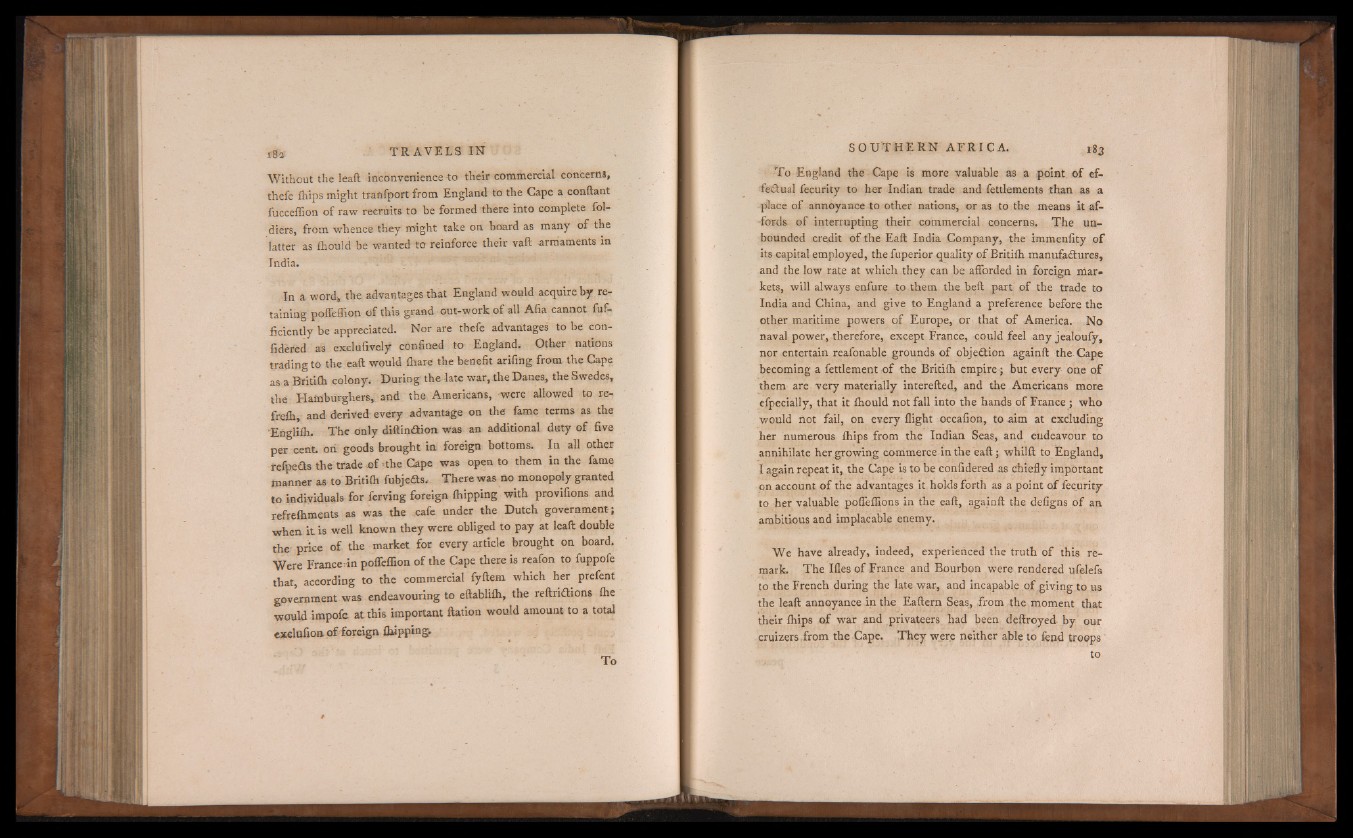
Without the leaft inconvenience-to their commercial concerns,
thefe Ihips might tranfport from England to the Cape a conftant
fucceffion of raw recruits to be formed there into complete fol-
diers, from whence they might take on board as many of the
latter as ihould be wanted to reinforce their vail -armaments in
India.
In a word, the advantages that England would acquire by retaining
poffeffion of this grand out-work of all Afia cannot fuf-
ficiently be appreciated. Nor are thefe advantages to be con-
fidered as exelufively confined to England. Other nations
trading to the eaft would {hare the benefit arifing from the Cape
as a Britiih colony. During the late war, the Danes, the Swedes,
the Hamburghers, and the Americans, -were allowed to re-
freih, and derived every advantage on the fame terms as the
'Engliih. The Only diftin&ion was an additional duty of five
per cent, oh goods brought in foreign bottoms. In all other
r e f p e S s the trade of- the Cape was open to them in the fame
manner as to Britiih fubjeas. There was no monopoly granted
to individuals for ferving foreign Slipping with provifions and
refreffiments as was the cafe under the Dutch government ;
when it is well known they were obliged to pay at leaft double
the price of the market for every article brought on board.
Were France in poffeffion of the Cape there is reafon to fuppofe
that, according to the commercial fyftem which her prefent
government was endeavouring to eftabliih, the reftriflions ihe
would impofe at this important ftation would amount to a total
exdufion of foreign flyppinjj
To
To England the Cape is more valuable as a point of ef-
feaual fecurity to her Indian trade and fettlements than as a
place of annoyance to other nations, or as to the means it affords
of interrupting their commercial concerns. The unbounded
credit of the Eaft India Company, the immenfity of
its capital employed, the fuperior quality of Britiih manufaitures,
and the low rate at which they can be afforded in foreign markets,
will always enfure to them the beft part of the trade to
India and China, and give to England a preference before the
other maritime powers of Europe, or that of America. No
naval power, therefore, except France, could feel anyjealoufy,
nor entertain reafonable grounds of objection againft the Cape
becoming a fettlement of the Britiih empire; but every one of
them are very materially interefted, and the Americans more
efpecially, that it ihould not fall into the hands of France ; who
would not fail, on every flight occafioh, to aim at excluding
her numerous ihips from the Indian Seas, and endeavour to
annihilate her growing commerce in the eaft; whilft to England,
I again repeat it, the Cape is to be confidered as chiefly important
on account of the advantages it holds forth as a point of fecurity
to her valuable poffeffions in the eaft, againft the defigns of an
ambitious and implacable enemy.
We have already, indeed, experienced the truth of this remark,
The Ifles of France and Bourbon were rendered ufelefs
to the French during the late war, and incapable of giving to us
the leaft annoyance in the Eaftern Seas, from the moment that
their Ihips of war and privateers had been deftroyed- by our
cruizers from the Cape. They were neither able to fend troops
to